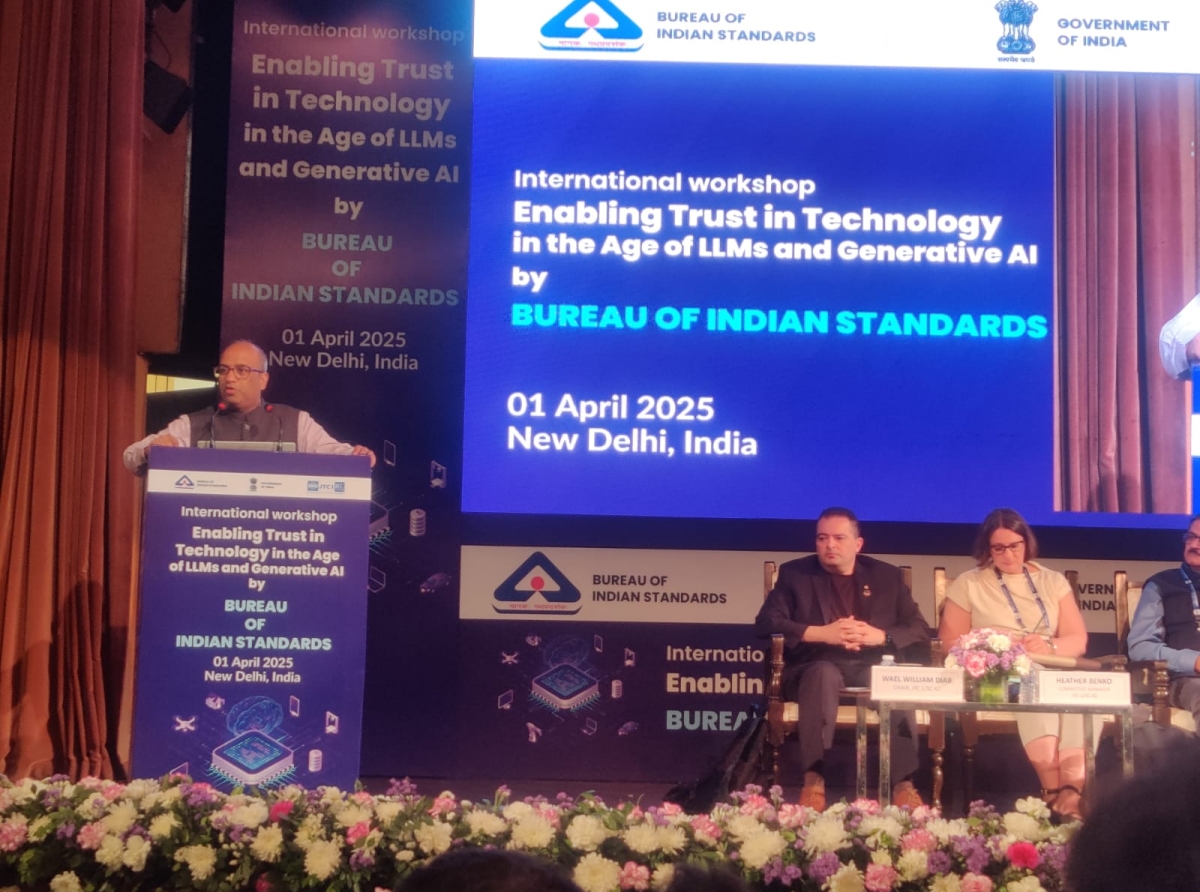At the "Enabling Trust in Technology in the Age of LLMs & GenAI" summit, Abhishek Singh, additional secretary at MeitY, took the stage to deliver a compelling address on one of today’s most pressing technological challenges—how to establish trust in artificial intelligence.
He began by acknowledging the contributions of fellow panelists, including Mr. Dayal, who is spearheading efforts to develop AI standards, alongside committee member Hidar and esteemed colleagues Bharat, Mr. Chandrika, and Reena Gargi.
Singh posed a fundamental question: When do we trust technology? Just as society grew to trust automobiles and airplanes through rigorous safety standards, AI must undergo similar scrutiny. Transparency, accountability, and fairness are key to ensuring that AI serves humanity without bias or unintended consequences.
One of the major concerns he highlighted was that AI development remains concentrated in a handful of countries and corporations, often trained on datasets that lack diversity. This can lead to inherent biases in AI models, making them less reliable for diverse populations, especially in the Global South, where digitalization has lagged. To address this, he called for internationally recognized AI standards that prioritize inclusivity and fairness.
India is actively working toward this goal through initiatives like the India AI Mission, where AI is being leveraged in healthcare, agriculture, language accessibility, and public services.
He emphasized the need for standardized frameworks—especially for voice-based AI interactions, electronic health records, and interoperability between systems—to ensure widespread and equitable AI adoption.
Illustrating the real-world implications, Singh referenced the National Manuscript Mission, which aims to digitize ancient Indian texts. However, some scripts, such as Grantha, Brahmi, Prakrit, and Pali, still lack Unicode standards, making digital preservation a challenge. Developing robust AI standards for linguistic diversity will be crucial in making AI truly inclusive.
Singh praised the Bureau of Indian Standards (BIS) and C42 for hosting this critical conversation in India, bringing together global experts to shape the future of AI governance. He urged all stakeholders to collaborate in developing ethical, unbiased, and globally inclusive AI frameworks, ensuring that the next wave of technological advancements benefits all of humanity, not just a select few.

























